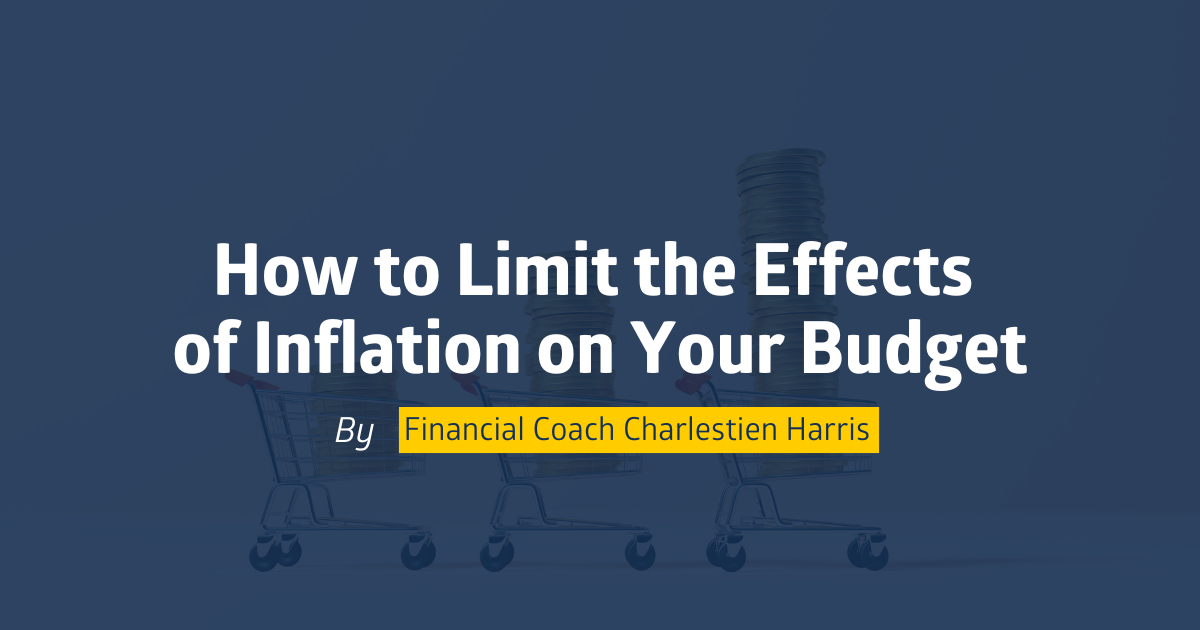By Charlestien Harris
Eventually, what goes up must come down…right? Well, sometimes yes, and sometimes no – especially as it relates to inflation.
Inflation is the rate at which prices increase over a given period. It can also be described as the decline in the purchasing power of money. You’ll often see inflation measured by what’s called the Consumer Price Index (CPI), which is how the U.S. Bureau of Labor Statistics measures the average change over time in the prices paid by consumers for a market basket of consumer goods and services.
Over time, inflation can take a toll on your business and personal finances. But there are some practical ways to help curb the effects of rising prices and protect your budget.
1. Shop Your Pantry
Before heading to the grocery store, make it a habit to check your pantry shelves. Previously purchased items like canned goods, pasta, and other staples often get forgotten in dark corners. By taking inventory of what you already have, you’ll avoid buying duplicates, potentially shorten your grocery list, and reduce food waste.
2. Scale Back on Luxuries
The current economic climate may require cutting back on discretionary spending – non-essential expenses made after covering necessary costs. For example, if you planned multiple vacations this year, consider skipping one. If you frequently dine out for dinner, opt for lunch instead, which is typically cheaper. When budgets get tighter, it’s always helpful for me to bring it back to the basics of needs vs. wants – needs are essential items for your survival; wants are non-essentials that aren’t required day-to-day but can make life more enjoyable.
3. Drive Smarter
Although gas prices have dipped slightly from their mid-year highs, filling your tank still isn’t cheap. Try these tips to reduce fuel consumption:
- Combine errands to minimize trips
- Avoid driving during peak traffic times
- Turn off your engine when waiting
- Check tire pressure regularly
- Limit air conditioning use
- Walk or bike when possible
Also, use GPS apps to find the fastest routes and fuel apps to locate the cheapest gas nearby.
4. Choose Generic Brands Over Name Brands
Switching to generic brands can significantly reduce grocery costs. You may even discover a new favorite. Store-brand items are often just as good as name brands – and much cheaper. I personally follow this tip and always say, “It’s what you season it with that makes the difference.”
5. Earn More Money
This might be unexpected, but increasing your income is another way to combat rising prices. Consider asking for a raise, working overtime, or updating your resume to find a higher-paying job with better benefits. You could also explore a side hustle to supplement your income – just be sure it doesn’t conflict with any noncompete agreements from your primary job.
6. Deal With Debt
Monthly debt payments can be a burden. Aim to pay at least the minimum, and add extra when possible to accelerate repayment. When shopping, consider using cash to avoid increasing credit card balances. You might also explore a consolidation loan to lower your interest rates and monthly payments to debt obligations. If a large portion of your monthly budget goes toward credit card payments, focus on reducing that debt. Consolidating with a single lender offering a reasonable rate can help. Depending on your balance, it may take months or years to pay off, but a consistent, disciplined approach will be a big benefit in the long run.
Inflation has strained many household budgets, but there are steps you can take to lessen the impact, at least a little. The tips above are just a few options to help you manage these rising costs and keep you financial life on track.
For more information on this and other financial topics, feel free to email me at charlestienharris77@gmail.com or write to P.O. Box 1825, Clarksdale, MS 38614.
Until next week – stay financially fit!
